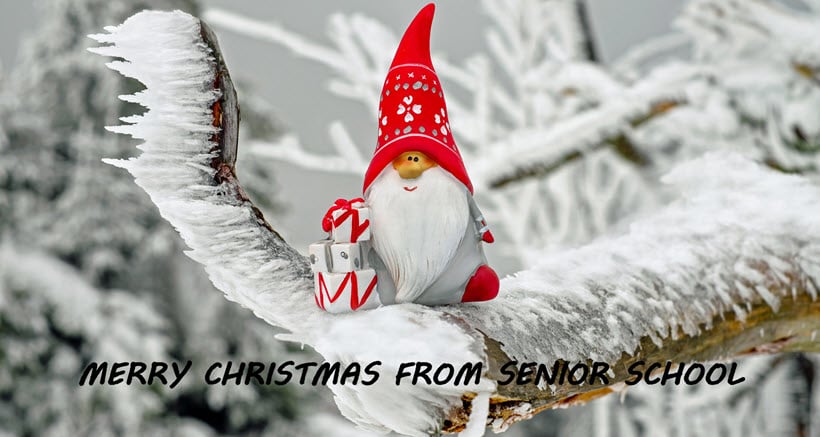
As we conclude another busy and successful term, I’d like to thank our pupils for their hard work over the past few months. It has been inspiring to see so many of you passionate about your learning, and reading this newsletter shows the many enriching and engaging experiences that have shaped your journey.
Our school motto, often shortened to ‘Rise to the Challenge’, perfectly reflects the spirit we’ve seen across all year groups. Your achievements, effort, and enthusiasm have shown this motto in action—well done! I would also like to thank our fantastic staff, whose dedication and passion keep our school thriving. They work tirelessly to create outstanding learning opportunities and ensure our pupils receive the best possible education. Their commitment makes our school such a wonderful and supportive place.
After the Christmas break, pupils will be completing their assessments. While it’s important to relax and enjoy time with family and friends, a little preparation can boost confidence. All pupils have attended sessions on effective revision strategies. For parents looking to support children at home:
- Encourage revision in a shared area where you can offer help and keep track of progress.
- Get involved by quizzing them and letting them explain what they’ve learned—give them the chance to be the teacher.
- Make sure they are actively revising—ask them to show you the notes or resources they’ve been using.
Remember, our teachers are here to help, so please get in touch with any questions or concerns. Wishing everyone a very Merry Christmas and a Happy New Year. Enjoy the holiday, and we look forward to seeing you all in January for another fantastic term ahead.
SCIENCE
As we approach the end of another busy term, the Science Department is excited to share the fantastic progress our students have made and highlight opportunities for enrichment and support.
This term, students participated in the CREST enrichment project, where they designed and constructed models of water collectors and dispensers to promote hygiene on the school playground. Alongside these models, students created educational materials to emphasise the importance of cleanliness and hygiene. The designs were creative and well-executed and demonstrated remarkable problem-solving skills—and most importantly, they (mostly!) worked. Seeing the enthusiasm and teamwork on display was a delight, and we’re proud of what the pupils accomplished while having so much fun.


Additionally, we launched our Science Clinic attending to receive additional support and practice in science. If your child would benefit from extra help in any of their science subjects, we warmly encourage them to join us.

BIOLOGY – Mr Leigh
- Year 7: Students explored the organs and systems of plants and animals, focusing on the respiratory system and gas exchange in humans.
- Year 8: Discussions centred on diet and lifestyle factors affecting the body, as well as the processes of photosynthesis and respiration in plants.
- Year 9: We delved into the structure of eukaryotic and prokaryotic cells, techniques for observing cells, and the mechanisms of osmosis and diffusion.
- Year 10: Lessons covered the digestive system, enzymes, aerobic and anaerobic respiration, and the effects of exercise on the body.
- Year 11: Students studied reproduction and inheritance, ecosystem dynamics, and species adaptations and interdependence.
CHEMISTRY – Mrs Poole
- Year 7: Students learned about the particle model, states of matter, and reactions between acids and alkalis.
- Year 8: Lessons focused on atoms, elements, and the periodic table, including group-specific trends.
- Year 9: GCSE topics included atomic structure, compounds, mixtures, and a deeper dive into periodic table trends.
- Year 10: Students tackled chemical changes, including oxidation/reduction, the reactivity series, and acid-base reactions.
- Year 11: Nearing the end of their chemistry studies, pupils explored the Earth’s resources, recycling, potable water, and alloys.
PHYSICS – Mr Thorn
- Year 7: Pupils examined forces and their interactions, balanced and unbalanced forces, Newton’s Third Law, waves as energy transfers, and sound waves.
- Year 8: Building on prior knowledge, students studied electricity, magnetic fields, electromagnetism, and energy in everyday life.
- Year 9: Students began GCSE content, focussing on energy transfers, the Law of Conservation of Energy, and global electricity production.
- Year 10: Topics included electricity (circuits and domestic usage), the particle model of matter, and the relationship between gas pressure, temperature, and volume.
- Year 11: After completing the extensive topic of forces, pupils moved on to waves and are nearing the conclusion of their physics studies.
We hope all our students enjoy a well-deserved Christmas break. We encourage everyone to start revision early to prepare for their January assessments. We wish you a peaceful holiday season and a happy New Year. We look forward to seeing you all in 2024, ready for another term of discovery and learning. Best wishes, The Science Department
ENGLISH – Mrs Courtney-Ward

Students have continued to impress me at Tower College since I started Ms Riley’s maternity cover for English Language in September. Here are a few of the many highlights of 2024 as we begin to look forward to a brand-new year and the Christmas holidays.
Year 7 have studied crime and detective fiction and have produced some wonderful pieces including a newspaper article on a crime at Willersley Castle, a ‘Penny Dreadful’ and, more recently, we have read an array of extracts from Charles Dickens’ Oliver Twist which we took on roles for and acted out! I asked Year 7 to devise a Christmas story – suitable for KS1 to read – for their recent homework; it was a move away from crime and detective fiction and students handed in some wonderful responses – I will be taking these home and sharing them with my seven-year-old – have a look at the photo attached as an example of some of the pieces. Brilliant work, Year 7!
Year 8 studied the gothic genre, one of my favourite genres to teach; students were introduced to infamous characters like Bram Stoker’s Dracula, Mary Shelley’s Frankenstein, Dickens’ Havisham and Gaiman’s Coraline. Students have just submitted their own gothic story to me (photos attached) – they have created a front cover, blurb and two or more chapters of creative writing, as a homage to the gothic genre. I have been overwhelmed by some of these submissions – the level of care and attention to detail has been phenomenal! Well done, Year 8!
We concluded Year 9, after covering a lot of non-fiction content, with a two-week winter writing assessment, and students read the opening to In Cold Blood by Truman Capote. I then introduced them to the concept of emulating the author, and as a result of this, students continued with the narrative in the style of Capote – journalistic and centred on wonderfully descriptive linguistic devices like personification and oxymoronic phrases. Tess Kinney’s writing was just one example of our success with this, as every student tried their best to recreate Capote’s style. Tess’s account is below – thank you for allowing me to share it, Tess, and well done again! I loved your account so much!
Until one morning in mid-November of 1959, everything in Holcomb, Kansas, seemed untouched by the time. The unpaved streets stretched out like quiet veins through the town. The rhythms of life moved slowly here, predictable and serene, anchored by the close-knit community. It was a place where nothing extraordinary ever happened…
That morning, however, the stillness was broken. At first it was subtle, a flicker of unease spread out through the neighbours like an unspoken question. The town awoke to whispers that travelled faster than the wind rolling across the wheat field. By noon, the whispers had become a roar. The Smith family – respected, devout, and beloved by many – hadn’t been seen or heard from all morning.
When Sheriff Burns arrived at the Smith farm, the sight that greeted him was enough to make even his steady hands tremble. The farmhouse, usually warm and alive with sounds of John Smith’s work and his family’s laughter, stood eerily silent. The curtains drawn, the door slightly ajar, and the farm animals milled about. Sheriff Burns hesitated for a moment before stepping inside, his boots echoing on the wooden floorboards.
What he found inside the Smith farm would mark the beginning of a dark chapter for Holcomb, the kind that no one would believe could unfold in their corner of the world. The details – too gruesome, too incomprehensible – spread across the town like wildfire, leaving the coldest of all hearts shaken. By the end of the day, Holcomb was no longer the same. Its purity had been shattered, and the echoes of that morning would linger for years to come.
For decades, people recall that fateful day as the moment their village lost its veil of safety. Strangers became aware of Holcomb, not for its wheat field or its close knit community, but for the darkness that crept its way into history on that cold November morning in 1959.
MATHS – Mrs King and Mr Abbot
Our upper and middle school pupils have had a productive term in maths. Our new year 7 pupils have settled well and have enjoyed studying a range of maths topics in their first term, including negative numbers, pie charts, angles and solving equations. Targeted intervention sessions are run in years 7, 8 and 9 so that appropriate pupils receive additional support. Practice is essential for success in maths. We have several resources available for pupils to use. TTrockstars is great for times tables, Eedi has a chatbot style, which is useful for spotting and resolving misconceptions, and Mathswatch has helpful video clips with instructions and examples for each topic alongside interactive and worksheet-style questions.
Top of the Mathswatch leader boards in each maths class for this term are:
| 11A | 11B | 10A | 10B | 9A | 9B |
| Ariana | Violet | Jess | Leo | Zoya | Nathan P |
| Deyang | Ollie | Leighora | Dominic | Ezra | Isaac |
| Tara | Jess | Abdurrahman | Catherine | Victor | Ben |
| 8A | 8B | 7A | 7B |
| Jiiva | Charlie B | Febo | Maisie |
| Marcus | Ibrahim | Bani | Georgie |
| Ethan | Matthew | Jaiden | Jack R |
Some classes have tight competition, with only a few points separating pupils. The highest-scoring pupil over the term is Jiiva in year 8, with an incredible 3993 points from answering assignment questions and independent learning questions. Well done, Jiiva!
November was Maths Week England 2024. Around school, there was a maths treasure hunt for pupils in years 7 -11. They could also try some of the sequence puzzles and daily problems that appeared outside the maths classrooms each day. Four pupils in year 9 succeeded with the treasure hunt and won a £5 Amazon gift voucher each. Well done to Malaika, Zoya, Ezra, and Luca!
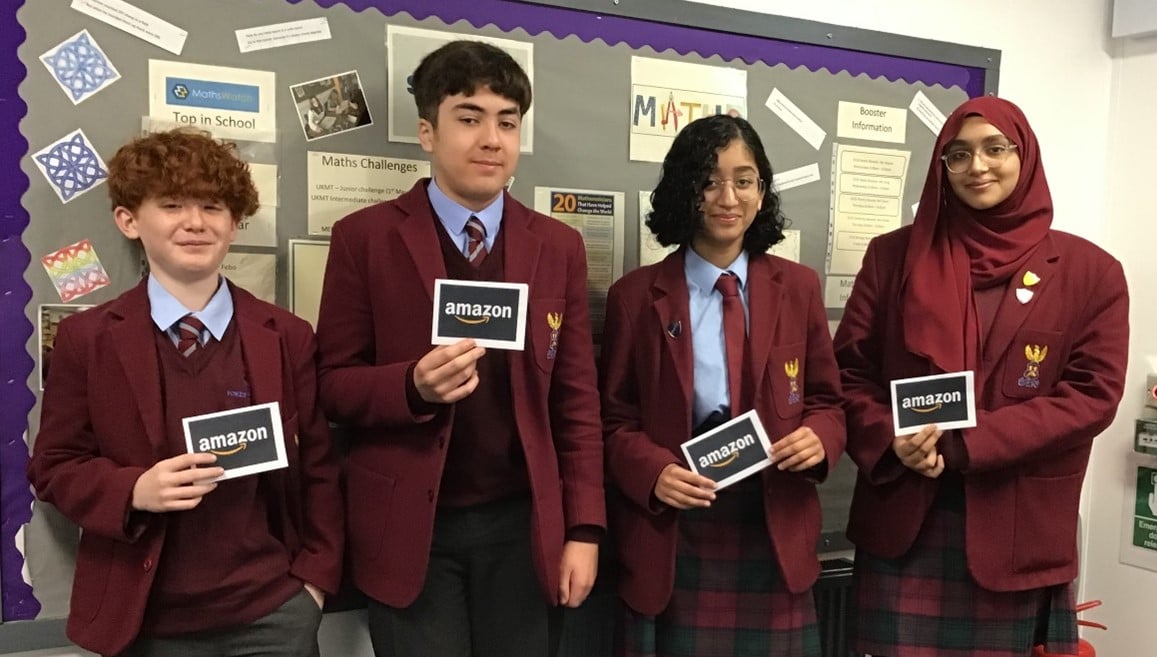
In the New Year, we will run the UKMT Intermediate Challenge on 29 January, and pupils from years 9, 10, and 11 will be invited to participate. Later in the year, we will run the Junior Challenge for pupils in years 7 and 8. We look forward to both and aim to build on our success in 2024.
We also plan to take some of our year 10 pupils to the Storyhouse in Chester for a Maths Inspiration trip in March. The show Much Ado About Numbers promises to be engaging and interactive, revealing mathematical connections between Shakespeare and the world he lived in. Further details will follow in the new year.
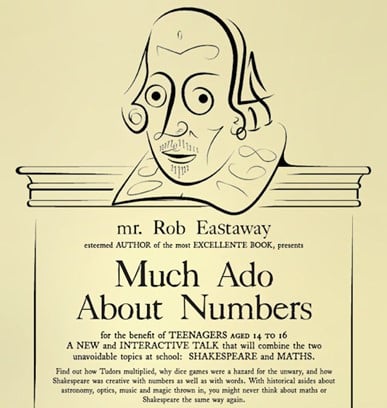
Before the end of term, Year 11 pupils have been given revision information for maths to help them prepare for their mocks. In addition to past papers, they have a revision list on Epraise and, earlier in the term, received a suggested 6-week schedule to follow, which would support them in organising their time. They can also use Corbett maths videos and worksheets (https://corbettmaths.com/contents/) as well as Mathswatch videos and interactive questions (https://vle.mathswatch.co.uk/) to revisit and work through topics where necessary to help them prepare fully for the mock exams.
Years 7 to 10 have been given revision lists on Epraise, and a revision exercise has been set on Mathswatch. Pupils should work through the exercise to help them structure their revision and then use the videos and interactive questions to revisit any topics that require further practice.
In the new year, the GCSE maths booster will continue Wednesday mornings from 8 a.m. to 8.45 a.m. for year 11 pupils. In addition, maths clinics will continue for all pupils in years 7 to 11, where they can drop in to receive some individual support. This can be revisiting topics from earlier in the year or gaining extra help with classwork. Wednesday lunchtime is for years 7 and 8, and Thursday lunchtime is for years 9, 10, and 11.
HISTORY – Mr Jack
Our Year 9 History classes recently put their deduction, communication, and diplomacy skills to the test to investigate the causes of the First World War. In small groups representing different countries between 1900 and 1914, they received clues about each nation’s strengths and involvement in recent conflicts. Ambassadors moved around the room, trading information and seeking alliances, and everyone did brilliantly at working out the two major alliances leading up to the ‘Great War.’

ART – Miss Carr
This term, our Art Department has been alive with creativity and imagination as pupils from Year 7 to Year 11 worked on various exciting projects. Through their hard work and dedication, they have developed their artistic skills and produced impressive pieces across different mediums. Here’s a glimpse of what they’ve been working on:
Year 7: Marine Life and Recycled Art. Year 7 pupils have been exploring the work of Tamara Phillips, known for her stunning watercolour marine life studies. Inspired by her techniques, they experimented with various media and honed their artistic skills. The term culminated in planning and creating their own marine creatures using recycled materials. Their growing confidence and impressive work are a credit to their dedication. Well done, Year 7!
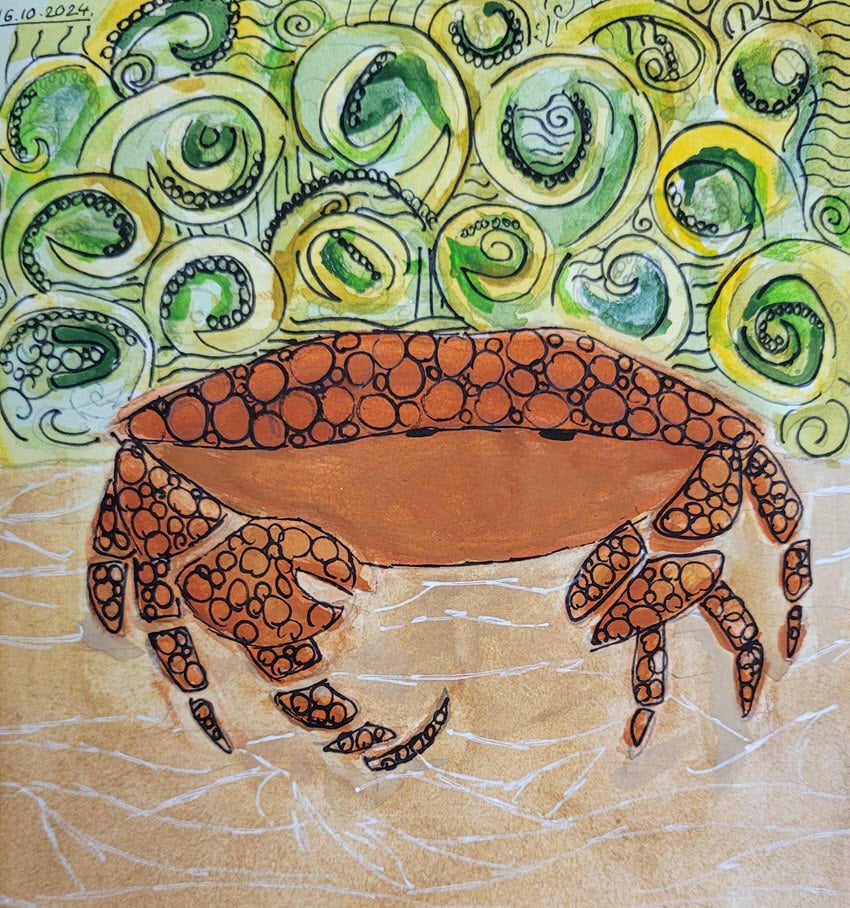
Year 8: Surrealism and the Solar System. Year 8 have been studying the work of Larissa Murariu, focusing on how she incorporates surrealism into her space-inspired art. Pupils experimented with different materials to create multiple studies and are now completing their A3 final pieces inspired by the solar system. Their imagination and skill development have been fantastic to see – great work, Year 8!
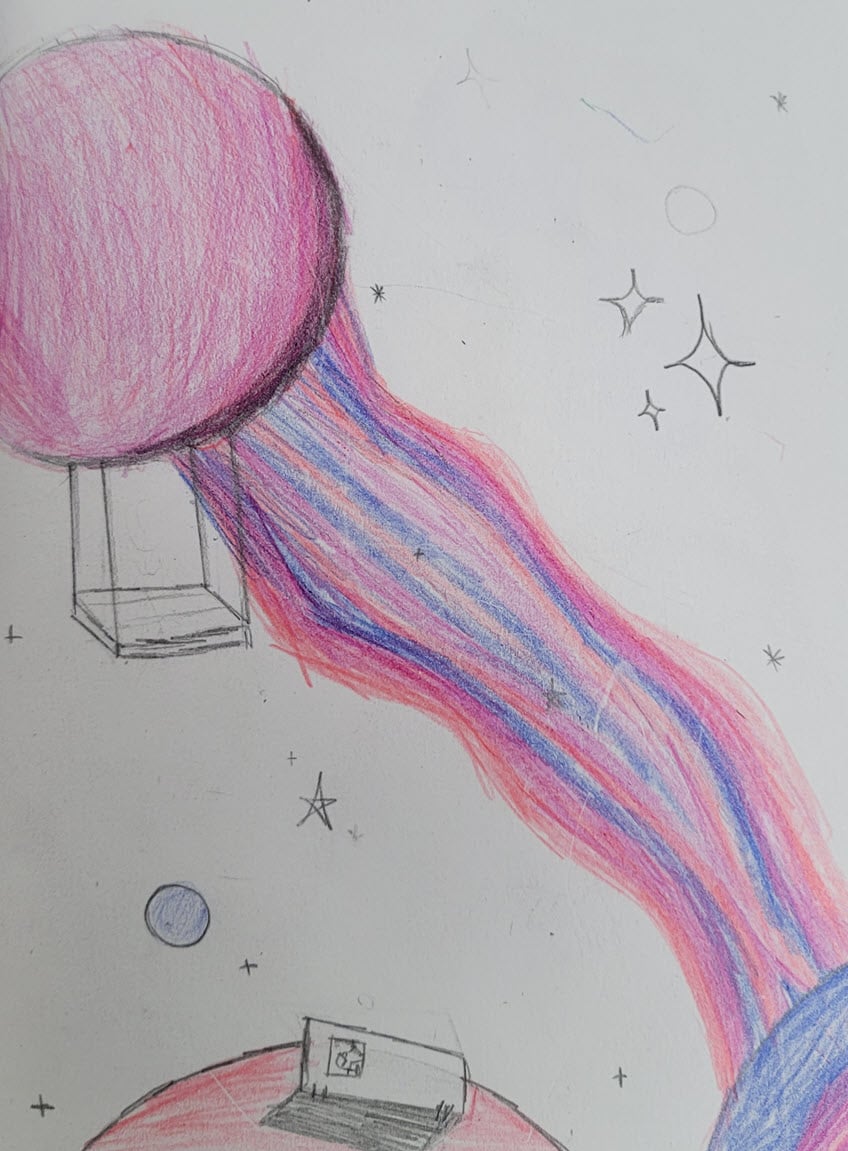
Year 9: Architectural Creativity. Year 9 pupils explored the architectural art of Dan Hogman and used his work as inspiration for constructing their own 3D abandoned houses. They have demonstrated exceptional creativity and craftsmanship from detailed planning to hands-on creation. The results are truly impressive—keep it up, Year 9!

Year 10: Natural Forms and Botany. Year 10 GCSE Art students have been studying natural forms, focusing on plant life and botany. Their portfolios showcase a stunning variety of materials and techniques, reflecting their hard work and dedication. After the half-term break, they will take their projects in new directions, creating pieces inspired by their chosen areas, artist influences, and their own photography.


Year 11: Pushing Boundaries with Natural Forms. Year 11 GCSE pupils have been balancing work on their new topic of natural forms with their existing chosen projects. Through experimentation with various media, they have pushed their creativity to new levels. As they plan and produce their final pieces, they continue to demonstrate impressive skill and commitment. Their efforts to meet deadlines have been outstanding—well done, Year 11!
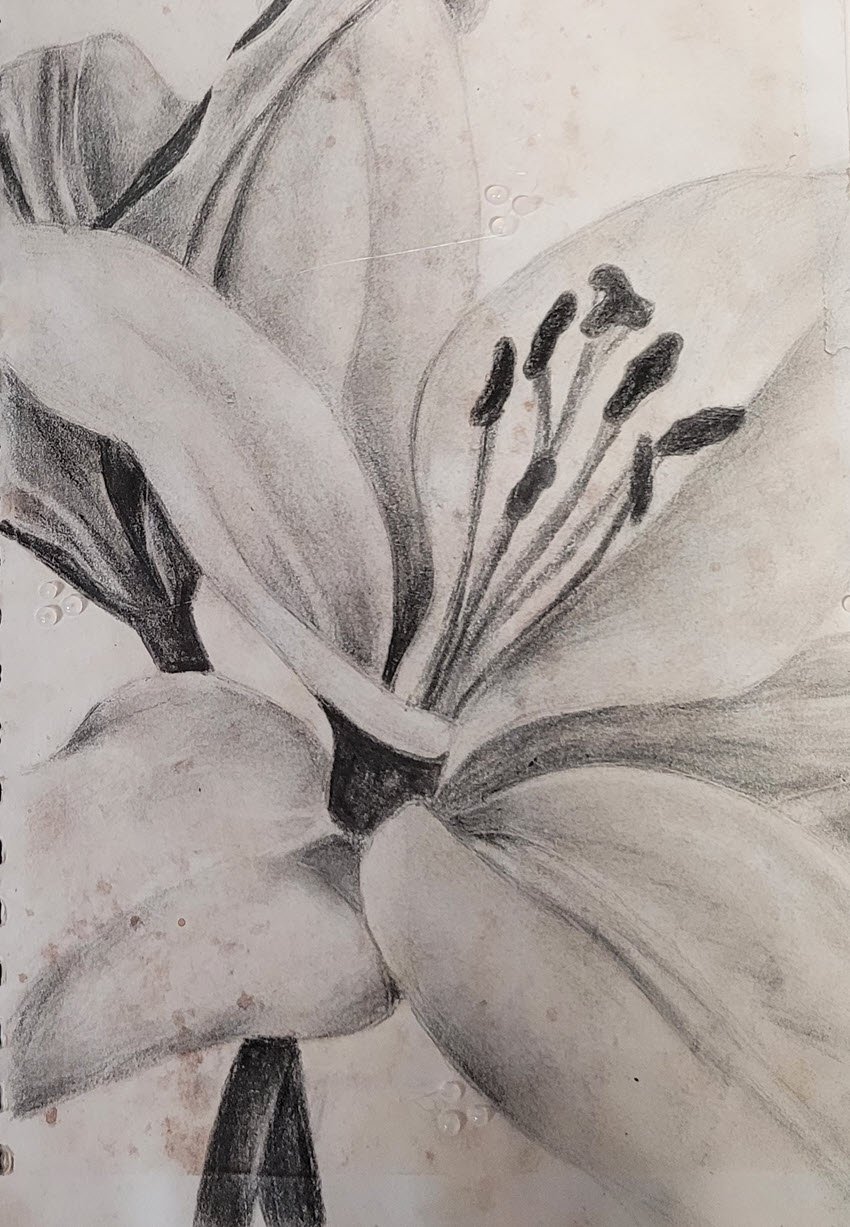
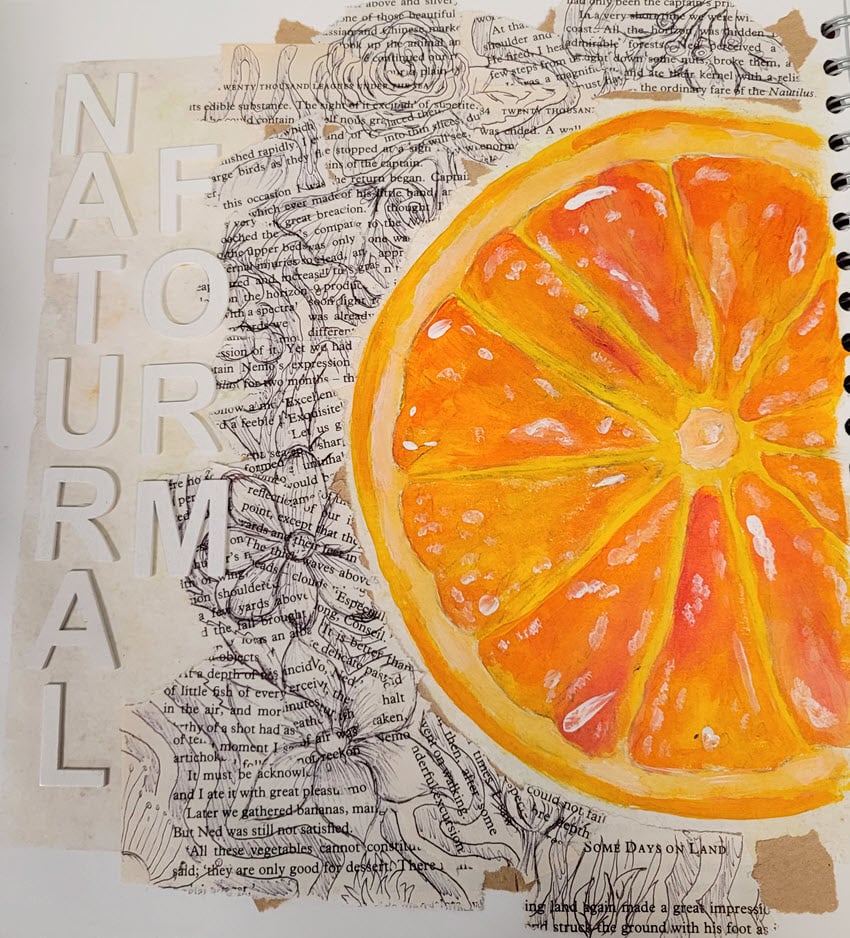
Art Ambassadors: A New Initiative
This term saw the launch of our Art Ambassador programme, an exciting opportunity for pupils from Year 5 to Year 10 to play an active role in the Art Department. Applicants were asked to explain why they would excel in this role, and two pupils from each year group were selected. These ambassadors will assist with art-related initiatives, including bringing fresh ideas to the department, organizing exhibitions, and helping with displays. Congratulations to our successful candidates—we’re excited to see how you’ll help shape the future of art at Tower College!
MUSIC – Mr Brown
This term has been exciting and busy for the Music Department, filled with fantastic performances and noteworthy achievements.
Carol Concert Preparations
Year 7 and Year 8 students have been diligently preparing their singing for the carol concert while also learning Christmas melodies on the keyboards. A special highlight of the term was the Christmas Choir, who delivered outstanding performances at the Rainhill Christmas Lights Switch-On event.
Outstanding Performers
We would like to commend several students for their outstanding contributions this term:
- Amelia (Y8), James (Y4), and Edward (Y5) for their wonderful singing.
- Jenell (Y5) for her remarkable piano performances.
- Edward (Y5), Sophia (Y3), Henry (Y6), Dino (Y5), Jenell (Y5), Fatima (Y7), and Akshara (Y4) for their fantastic entrance performances at the Christmas Carol Concert.
Music Profiles Initiative
As part of our commitment to enhancing music education, we have launched Music Profiles. This initiative encourages pupils to practice their instruments at home, nurture their passion with additional resources, and strengthen communication between in-school tutors and students.
Through their Music Profiles, pupils can:
- Earn points for home practice, performances, achieving instrument grades, and lesson progress.
- Track their points via a QR link on their profile poster.
- Borrow books from the Music Library
- Exchange points for prizes in the Music Store.
Achievement Recognition
To celebrate students’ progress, we have introduced Music Achievement Certificates and Badges for those advancing through instrument grades.
We would also like to congratulate the following pupils on their recent success in instrument exams:
- Charlotte (Y4)
- Jenell (Y5)
- Annabelle (Y5)
- Bella (Y8)
- Senumi (Y8)
- Anushri (Y9)
- Malaika (Y9)
GEOGRAPHY – Mrs Griffiths & Mr Taylor
This term, the Geography Department has been full of activity as pupils across all year groups have tackled exciting topics and developed valuable skills. Here’s an overview of the engaging learning taking place:
Year 7: Exploring the Power of Tectonic Hazards
Pupils have been exploring tectonic hazards, investigating the science behind earthquakes and volcanoes. They’ve also examined the effects of these powerful events and how communities respond, gaining insight into the forces shaping our planet and their impact on people.
Year 8: Understanding Our Dynamic Coastlines
Coastal landforms have been the focus, with pupils learning about the role of waves in shaping our coastlines. They now understand key coastal features, how they form, and the importance of managing coastal areas—especially in the UK, where erosion affects many communities.
Year 9: Discovering the Vital Role of Ecosystems
Pupils have been studying ecosystems, particularly tropical rainforests. They’ve learned about the crucial role these environments play, the threats they face, and strategies for sustainable management. A highlight of this unit was pupil presentations on protecting these ecosystems, where they demonstrated confidence and strong communication skills.
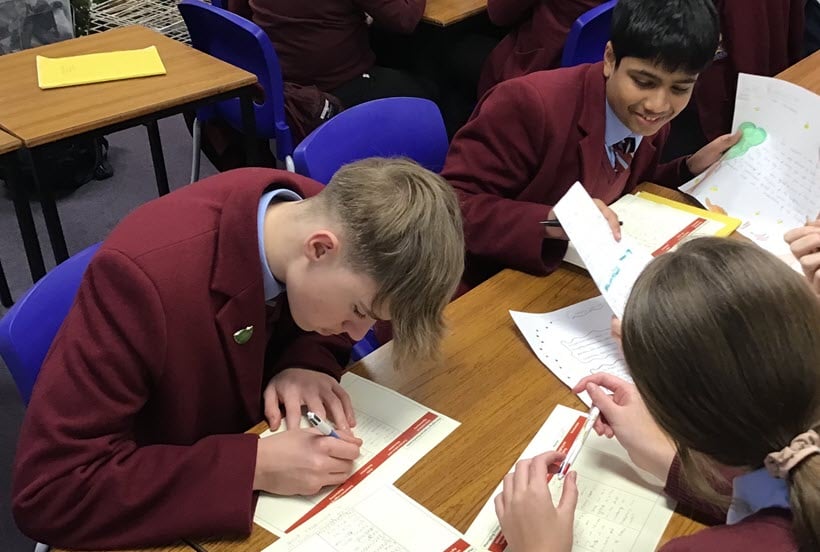
Year 10: Investigating Rivers and Coasts
As part of their GCSE studies, pupils have been exploring the UK’s river and coastal landscapes. Hands-on activities helped them understand the processes behind physical features, deepening their knowledge and preparing them for their upcoming exams.
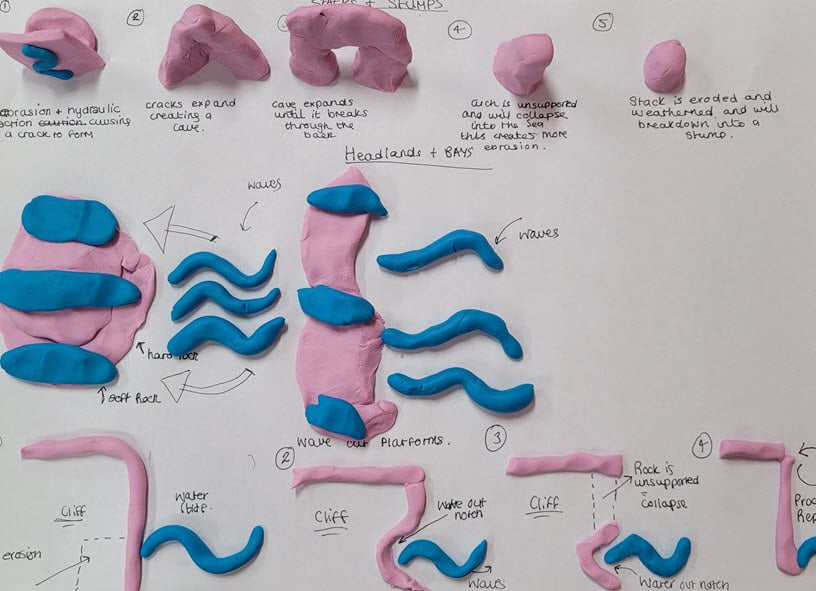
Year 11: Fieldwork and Global Perspectives
A highlight for Year 11 was their field trip to the Lake District, where they conducted investigations into tourism’s impact and river velocity. In the classroom, they’ve examined global issues such as the development gap and Nigeria’s economic growth, applying their learning to real-world scenarios.



We’re so impressed by the dedication and enthusiasm pupils have shown throughout the term. From everyone in the Geography Department, we wish you all a relaxing and enjoyable Christmas break.
RELIGIOUS EDUCATION – Mrs Griffiths, Mr Jack and Mr Taylor
This term, the RE Department has been engaging pupils in exploring big questions about religion, ethics, and philosophy, encouraging them to think critically and reflect on contemporary issues.
Year 7: Exploring the Roots of Religion
Year 7 embarked on an exciting journey through the history of religion, asking questions about what religion is and its meaning to people. They traced the development of belief systems from early animism to monotheism and learned about the major world religions. Pupils gained an understanding of the diversity of faiths and how religion contributes to modern British society. Pupils discovered common ground between different beliefs by focusing on the shared values of kindness and respect across religions. The term culminated in fantastic presentations on world faiths, highlighting the impressive research and insight of our Year 7 pupils. Well done, everyone!
Year 8: Diving into Philosophy
Our Year 8 pupils have been learning the art of logical reasoning while exploring life’s biggest questions. They examined arguments for the existence of God, including the design, first cause, and moral arguments, while also evaluating challenges to religious belief, such as the problem of evil and suffering. The lively discussions and thought-provoking debates in class have been a testament to their growing confidence in tackling complex philosophical ideas.
Year 9: Ethics in Action
Year 9 pupils explored ethical questions surrounding crime and punishment, looking at religious and non-religious views on justice and the causes of crime. Topics like capital punishment led to thoughtful classroom debates, allowing pupils to sharpen their speaking and reasoning skills. It’s been wonderful to see them reflect on how religious teachings can shape moral decisions and consider the relevance of these issues in modern UK society.
Year 10: From Christian Beliefs to Global Challenges
This term, Year 10 completed an in-depth study of Christian beliefs and practices before moving on to a unit on Religion, Peace, and Conflict. Pupils are now tackling global issues such as war, terrorism, and weapons of mass destruction. They’ve been examining religious perspectives on these topics and applying their learning to real-world scenarios, developing well-informed personal views.
Year 11: Understanding Judaism
Year 11 pupils have made excellent progress in their studies, completing their second unit on Judaism. This focused on Jewish beliefs and how they are expressed in everyday life, offering pupils a rich understanding of Jewish traditions and how faith influences modern living.
